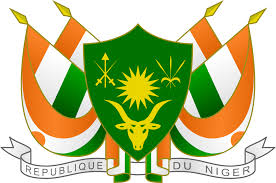Niger’s government has summoned Nigeria’s charge d’affaires, accusing Nigeria of using its territory as a base to destabilize the country. The development comes months after Niger’s military coup in 2023, which has since reshaped political and regional alliances across West Africa.
Niger’s Foreign Minister made the accusations in a formal meeting, claiming that Nigeria has aligned with foreign powers and officials of the ousted regime to undermine stability within Niger. The government further alleged that Nigeria’s actions are fueling internal unrest at a time when both countries are attempting to restore normalcy.
These claims, however, arrive in a delicate context. While security cooperation between the two neighboring nations resumed in August following a temporary freeze, the new allegations have sparked renewed diplomatic unease.
The relationship between Niger and Nigeria has remained tense since the coup, with both countries navigating the complex aftermath of Niger’s military-led transition of power.
In a statement released, Niger reiterated its commitment to regional stability and security, particularly its continued involvement in the Multinational Joint Task Force (MNJTF). The MNJTF, a coalition comprising Niger, Nigeria, Chad, and Cameroon, remains critical in the fight against jihadist insurgencies across the Sahel and Lake Chad regions. Despite ongoing political differences, Niger reaffirmed its support for joint military operations aimed at countering extremist groups along shared borders.
Observers have pointed out that the accusations could further strain Nigeria’s role as a regional powerbroker and complicate ECOWAS-led negotiations to stabilize Niger following its coup. Nigeria, under President Bola Ahmed Tinubu, has spearheaded diplomatic and economic pressure on Niger’s military junta while simultaneously engaging in security cooperation to contain growing insurgencies in the region.
Analysts warn that the renewed tension risks undermining broader efforts to combat terrorism and organized crime in the Sahel, a region already grappling with instability. “This escalation could weaken trust between the two nations at a time when cooperation is critical,” said a West African security expert.
As diplomatic channels remain open, the Nigerian government has yet to formally respond to Niger’s allegations. However, regional observers believe dialogue will be key to de-escalating the situation and ensuring continued collaboration against shared security threats.
For now, all eyes remain on both governments to address the grievances while prioritizing regional stability in a volatile Sahel.




